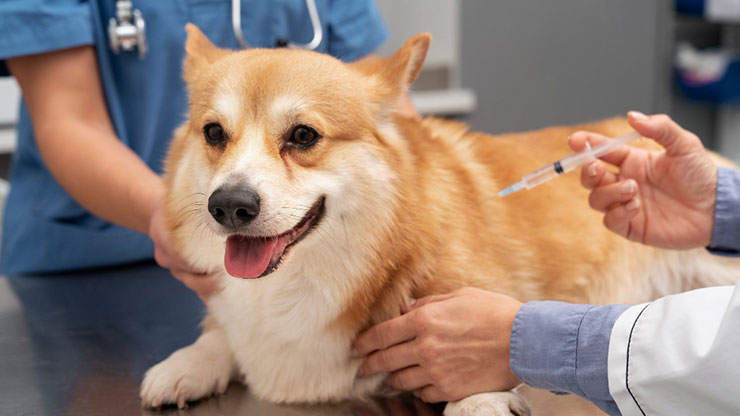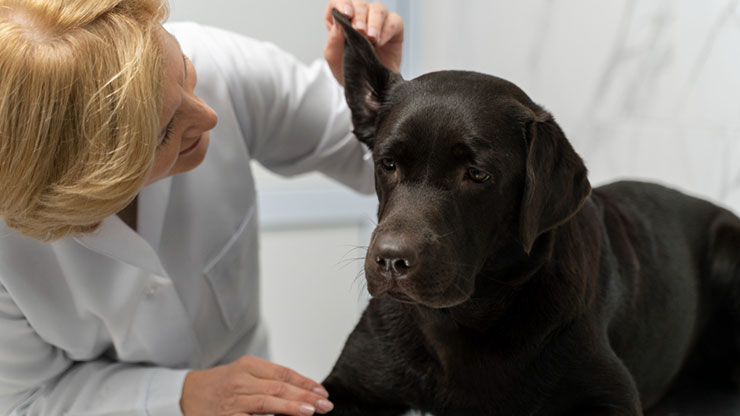
Navigating Breed-Specific Health Issues
Many purebred dogs are prone to inherited genetic disorders that can severely impact their quality of life. As a dog owner or prospective owner, it is critical to understand these health risks and take steps to avoid supporting breeding practices that propagate disease. Selecting responsibly bred dogs from breeders who prioritize health is key to improving outcomes in vulnerable breeds.
Understanding Common Genetic Diseases
Unfortunately, the very attributes that define some popular pure breeds often come saddled with genetic conditions. For example, the cute, squashed face and bug eyes that give the French Bulldog its appeal also underpin breathing difficulties. The wrinkly Shar-Pei carries genetic mutations that cause its signature loose skin look yet predispose it to inflammation. Across breeds, common issues include hip and elbow dysplasia, eye diseases, blood disorders, neurological diseases, and inherited cancers. These diseases are directly passed down through breeding lines.

Seeking Health Testing from Breeders
Reputable breeders actively work to understand and improve the genetic health of their dogs. They conduct tests on breeding stock to avoid producing puppies predisposed to preventable diseases. While no dog will be 100% guaranteed healthy, those from rigorously tested lines will have significantly reduced risks compared to poorly bred dogs. Ask breeders about health screening in their breeding program – a lack of testing is a red flag. Ideal breeders will test and share results for all recommended disorders in that breed, such as hip-scoring breeds that are susceptible to hip dysplasia or not breeding from a bitch that has poor physical attributes.
Understanding Complex Disease Inheritance
While some disease mutations directly cause illness, others require a combination of factors. A dog may carry risky genes but require environmental triggers like diet, toxins, or stress for disease manifestation. Multiple genes may also interact to produce illness. Even disease-free parents can produce less healthy offspring if both carry risky genes. Breeders must analyze pedigrees and use genetically diverse breeding stock to minimize the chances of propagating inherited illness.
Making Responsible Choices
By proactively selecting dogs from transparent, conscientious breeders who prioritize health, buyers can vote with their wallets for breeding practices that reduce disease. While health testing cannot eliminate all illnesses, it greatly improves the odds of a dog living a long, happy life unburdened by preventable suffering from genetic conditions. Researching breed-specific disorders, interrogating breeders about health protocols, and being willing to walk away from unsuitable breeders are crucial to being part of the solution. Small-scale responsible breeding based on health, welfare, and genetic diversity offers hope for healthier future generations.
When choosing a canine companion, it helps to be informed about breed-specific health issues so you can provide the best possible care. Certain breeds tend to be prone to particular conditions based on physical traits or genetics, so understanding these will allow you to catch problems early and have realistic expectations. Monitoring key health areas for your dog's breed and being vigilant about symptoms can lead to earlier treatment and better outcomes.

Here are some common health concerns seen in popular breeds:
Dachshund
Dachshunds are gorgeous little dogs; however, they are prone to health issues. The most common dachshund health issue is intervertebral disc disease, affecting the discs cushioning the spinal vertebrae due to their elongated bodies and short legs. Signs include pain, reluctance to jump or go upstairs, whimpering when lifted, and limb weakness or paralysis. Also, monitor this breed for issues like epilepsy, allergies, obesity leading to joint problems, and eye disease.
Cocker Spaniel
Eye issues abound in Cocker Spaniels, including progressive retinal atrophy, eventually causing blindness, cataracts, glaucoma, dry eye, and ingrown eyelashes rubbing on the eye, leading to corneal ulcers. They also suffer from ear infections in their pendulous ears, thyroid issues leading to skin conditions, as well as kidney disease and epilepsy.
Boxer
Boxers are cancer-prone, especially prone to mast cell tumors and brain cancer. They also frequently suffer arthritis, cardiac issues including aortic stenosis and arrhythmias, hypothyroidism, corneal ulcers, epilepsy, and intestinal issues like histiocytic colitis and inflammatory bowel disease. It is important for Boxers to get regular vet check-ups and be checked for lumps/bumps and changes in energy level, thirst, appetite, or bowel habits.
Pug
Brachycephalic Pugs frequently suffer breathing difficulties, exacerbated by hot, humid weather, obesity, and over-exertion. Signs include labored breathing, gagging, blue-tinted gums, and collapse. They also frequently experience skin fold dermatitis on facial wrinkles; eye issues like entropion, keratoconjunctivitis sicca, and progressive retinal atrophy; dental overcrowding; hip dysplasia; neurological issues including Pug dog encephalitis; and tendency towards obesity contributing to orthopedic issues.
Conclusion
Paying attention to health risks associated with your dog’s breed allows earlier detection so you can seek veterinary advice regarding symptoms noted. Understanding breed predispositions means you know what areas to monitor proactively as well.










